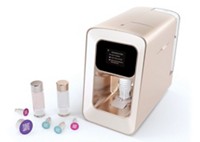Advertisement
Grab your lab coat. Let's get started
Welcome!
Welcome!
Create an account below to get 6 C&EN articles per month, receive newsletters and more - all free.
It seems this is your first time logging in online. Please enter the following information to continue.
As an ACS member you automatically get access to this site. All we need is few more details to create your reading experience.
Not you? Sign in with a different account.
Not you? Sign in with a different account.
ERROR 1
ERROR 1
ERROR 2
ERROR 2
ERROR 2
ERROR 2
ERROR 2
Password and Confirm password must match.
If you have an ACS member number, please enter it here so we can link this account to your membership. (optional)
ERROR 2
ACS values your privacy. By submitting your information, you are gaining access to C&EN and subscribing to our weekly newsletter. We use the information you provide to make your reading experience better, and we will never sell your data to third party members.
Business
DSM Will Acquire Polymer Technology Group
Dutch company will use purchase to expand in medical device market
by Melody Voith
April 29, 2008

As part of its shift toward the specialty materials business, DSM will acquire Polymer Technology Group (PTG), a privately held maker of biomedical polymers.
The deal is expected to close in the second quarter of this year, subject to regulatory approval. DSM isn't disclosing the purchase price other than to say it is about 10 times PTG's annual earnings. PTG, based in Berkeley, Calif., expects 2008 sales to reach $40 million and anticipates 20% annual growth in the next three to five years.
DSM has identified biomedical materials as an important growth area and started supplying the market in earnest last year. With the addition of PTG's portfolio and product pipeline, the Dutch company is now aiming for more than $150 million in medical biomaterial sales by 2012.
"We have highlighted the many opportunities we see in the cross-fertilization of our expertise in life sciences and materials sciences," DSM Chairman Feike Sijbesma says. "The biomedical market is an excellent area to display the benefits of DSM's combined abilities."
DSM is not alone in pursing the growing implant market. Solvay, FMC, and a number of smaller specialties firms are getting more involved in a business that many chemical companies avoided after Dow Corning declared bankruptcy in 1999 under the weight of liabilities from silicone breast implants (C&EN, Nov. 5, 2007, page 14).
Now, life is a little easier for suppliers of implantable materials, thanks to the legal protection offered by the 1998 Biomaterials Access Insurance Act. The act places limits on product liability in order to assure the continued supply of materials for lifesaving medical devices.
Meanwhile, many uses for biomedical materials—in pacemakers, contact lenses, stents, orthopedic implants, catheters, and implantable sensors—are growing in developed countries with aging populations.
PTG has been supplying device makers with biomaterials since 1989 and has 100 employees. DSM says PTG cofounder Bob Ward will continue in his position as president after the acquisition.
DSM will gain a product portfolio that includes BioSpan segmented polyurethane, Bionate polycarbonate urethane, and CarboSil silicone polycarbonate urethane. Recently, PTG expanded its California facilities to support contract manufacturing of medical devices.



Join the conversation
Contact the reporter
Submit a Letter to the Editor for publication
Engage with us on Twitter